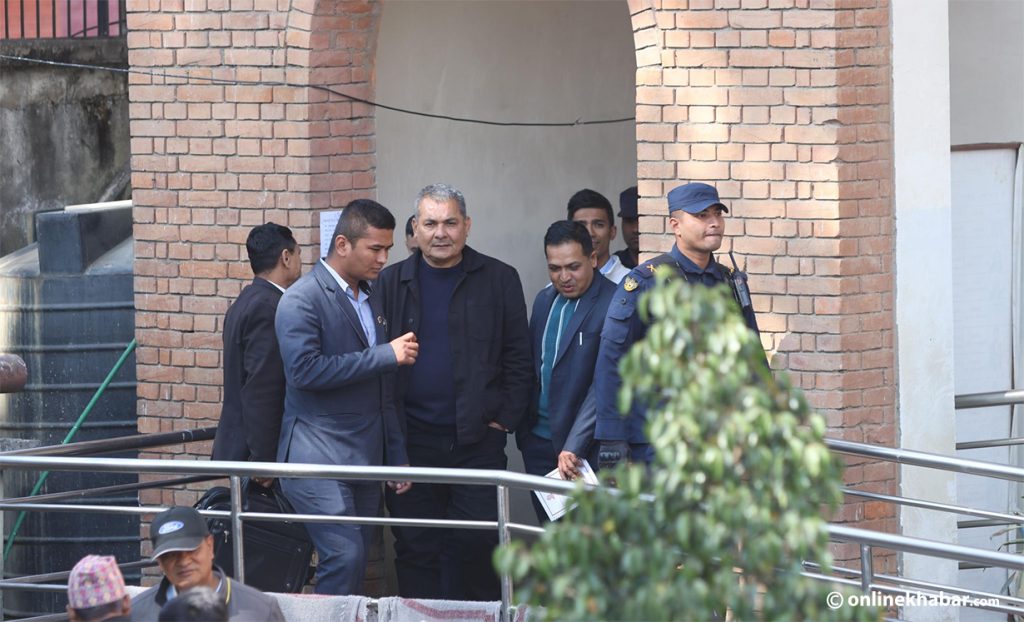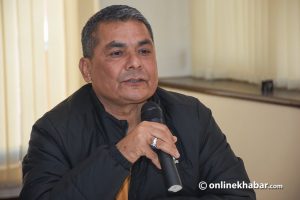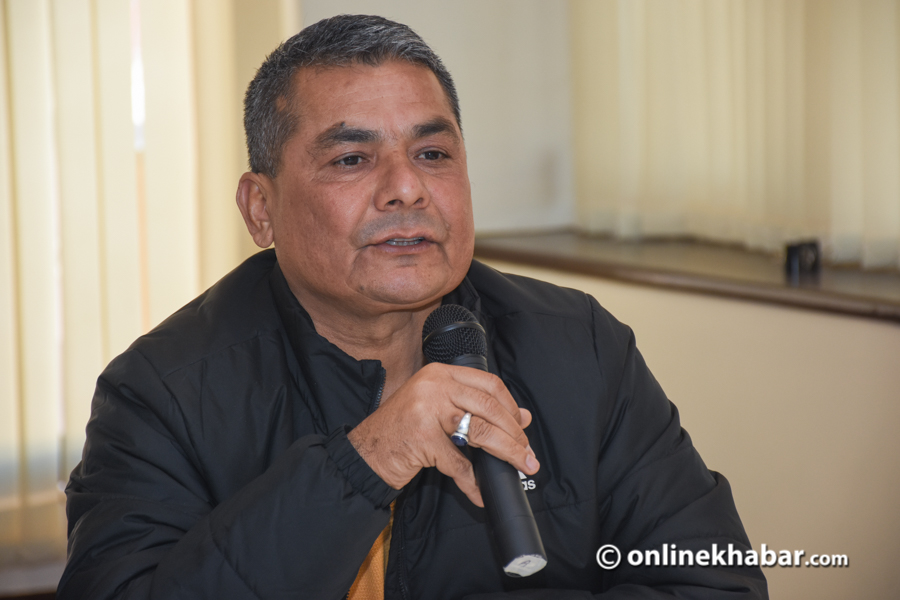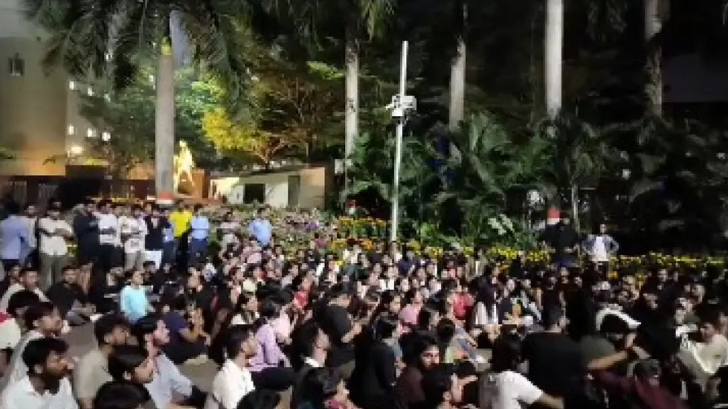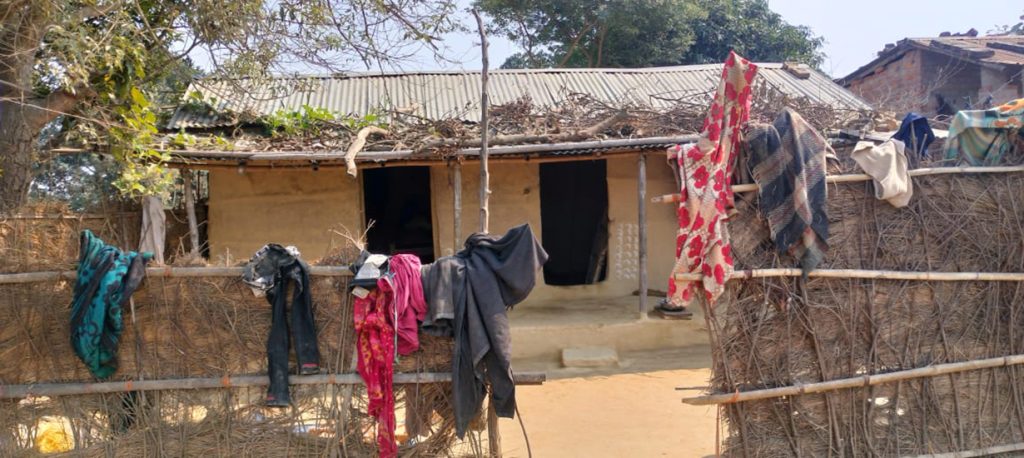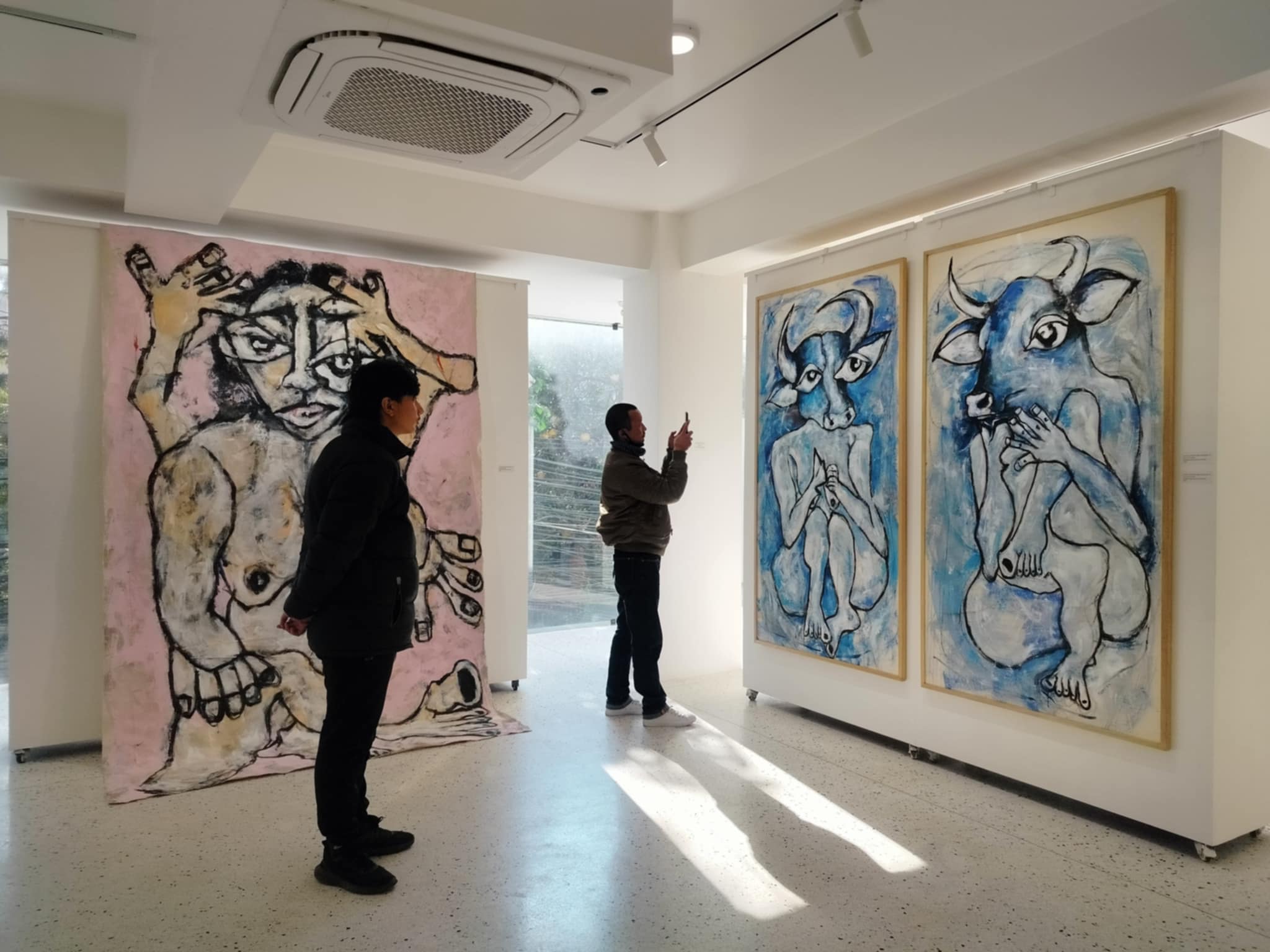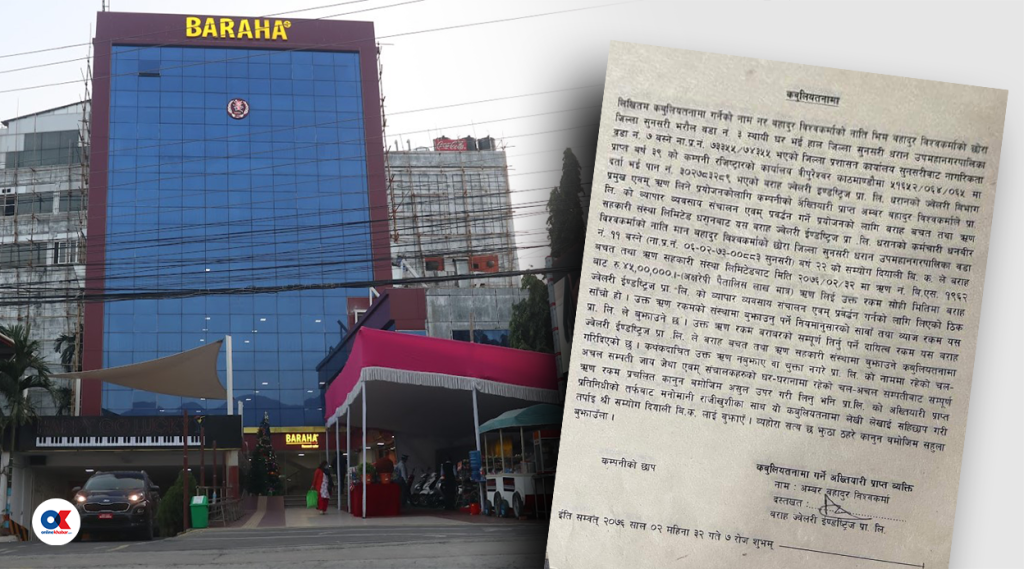
Controversial Jhapa-based medical entrepreneur Durga Prasai has been transferred to the Central Investigation Bureau (CIB) of Nepal Police for a detailed investigation into allegations of criminal extortion. Prasai, who was previously under Cyber Bureau custody, is accused of paying Rs 500,000 to orchestrate threats against businesspersons in Nepal using the name of Indian gangster Lawrence Bishnoi.
Transfer and ongoing investigation
On Monday, the CIB brought Prasai to its Lazimpat office to continue its probe under criminal extortion charges. He will remain in custody at the CIB’s Maharajgunj detention center while the investigation advances. Prasai’s transfer follows the Cyber Bureau’s completion of its investigation under the Electronic Transactions Act.
The businessperson was initially arrested from his residence in Bhaktapur on November 19 and handed over to the Cyber Bureau for allegations linked to spreading misinformation. The arrest came shortly after his controversial public statement suggesting Prime Minister KP Sharma Oli’s involvement in investments in Cambodia, a claim that garnered widespread attention.
The Rs 500,000 transaction
The case against Prasai has deepened with revelations that he allegedly paid Rs 500,000 to Harichandra Phuyal, another detainee from Jhapa, to issue threats in Bishnoi’s name. CIB Director and AIG Deepak Thapa confirmed the payment during a press briefing, stating that the funds were channeled through an intermediary whose identity has now been established.
“The money was sent as living expenses and operational costs for issuing threats while residing in India,” AIG Thapa explained. Investigators determined that Prasai did not transfer the amount directly but instead relied on a middleman to deliver the funds to Phuyal. Phuyal has admitted to receiving the payment during his time in detention and confessed to issuing the threats at Prasai’s behest.
Role of Harichandra Phuyal
Phuyal’s role in the case was uncovered during CIB’s investigation. Arrested from Mechinagar-13, Jhapa, Phuyal allegedly made over 100 calls to businesspersons, threatening them using Bishnoi’s name. CIB’s investigation revealed a pattern of calls and text messages sent during periods that coincided with Prasai’s interactions with Phuyal.
Phuyal, who operated under the alias “Navin Pradhan” while in India, used fake Indian documents, including an Aadhaar card, to acquire SIM cards for issuing threats. The investigation also uncovered that Phuyal sold ghee in India, operating a shop in Panitanki near the Nepal-India border. His activities under the assumed identity have raised suspicions about his deeper involvement in organised crime.
Connection to Lawrence Bishnoi
The use of Indian gangster Lawrence Bishnoi’s name added an international dimension to the case. Bishnoi is a notorious figure currently incarcerated in India’s high-security Tihar Jail on charges of extortion and murder. CIB investigators have clarified that there is no direct link between Bishnoi and the threats issued in his name. Bishnoi’s name was reportedly used to amplify the intimidation.
Notably, Bishnoi has a history of threatening prominent individuals, including Bollywood actor Salman Khan. His operations have been linked to organised extortion rings across India, and his transfer to Tihar Jail followed revelations that he was orchestrating criminal activities from within his previous prison in Maharashtra.
The larger criminal network
CIB has identified six additional individuals linked to the case who are currently at large. These suspects are believed to have played various roles, including facilitating financial transactions and assisting with the issuance of threats. AIG Thapa disclosed that efforts are underway to locate these individuals, with some identities already confirmed.
“Some were involved in issuing threats, while others handled the money transfers. The roles are varied, but they point to a coordinated effort,” Thapa said. The investigation has also revealed the potential involvement of more individuals in Nepal and India, raising questions about the scale and reach of the operation.
Organised crime allegations
The case has raised concerns about organised criminal activities involving multiple individuals working across borders. According to CIB officials, the systematic nature of the operation suggests an organised network. Investigators are exploring the possibility of additional charges under organised crime statutes.
“The nature of the operation indicates organised efforts involving more than three individuals,” said a senior CIB official. “Whether it qualifies as organised crime will be determined in consultation with the public prosecutor.”
Phuyal’s criminal history
Phuyal has a documented history of criminal activity. He was previously charged in a bounced check case in Sunsari, for which he was released on bail after paying Rs 1.4 lakh. Another bounced check case was filed against him in Morang, where he remains a fugitive. His involvement in the extortion case has further highlighted his criminal background and alleged connections to broader illicit activities.
Phuyal’s statements to investigators have added layers to the ongoing case. He reportedly claimed that he was coerced into issuing threats and feared for his life if he disobeyed Prasai’s instructions. However, investigators argue that Phuyal willingly participated in the scheme in exchange for financial benefits.
Complaints by businesspersons
The investigation began after four businesspersons filed complaints with the CIB, alleging that they received threats from Indian and Dubai-based phone numbers. The callers reportedly demanded large sums of money and claimed to be associates of Lawrence Bishnoi. The threats were consistent in tone and intent, leading authorities to suspect a coordinated operation.
CIB’s subsequent investigation revealed that Phuyal was the source of the calls, operating under Prasai’s direction. The threats targeted unrelated individuals and businesspersons, adding to the complexity of the case.
Implications and future actions
The CIB is expanding its investigation to examine whether the case involves broader organised crime networks operating between Nepal and India. The Bureau has also indicated that it may explore financial crimes and other related charges against the suspects.
“The suspects’ actions reflect a high level of coordination, pointing to an organised effort. We will determine the full extent of the operation after receiving the public prosecutor’s input,” a CIB investigator said.
Meanwhile, the search for the six absconding suspects continues. Investigators are also working to trace the money trail and establish the roles of intermediaries involved in transferring the funds to Phuyal.
Public interest and legal ramifications
The case has drawn significant public attention due to the involvement of high-profile figures and the use of an international gangster’s name. Legal experts have suggested that the charges against Prasai could result in severe penalties if he is found guilty of criminal extortion and related offenses.
Authorities are under pressure to ensure a thorough investigation and bring all suspects to justice. The case has also raised questions about the effectiveness of law enforcement in preventing cross-border criminal activities.
As the investigation unfolds, CIB officials have emphasised the need for international cooperation to address the transnational elements of the case. The use of forged documents, international SIM cards, and threats issued across borders highlight the growing challenges in tackling organised crime in the digital age.




